Elephant Sanctuary – Chiang Mai, Thailand
categories: asia travel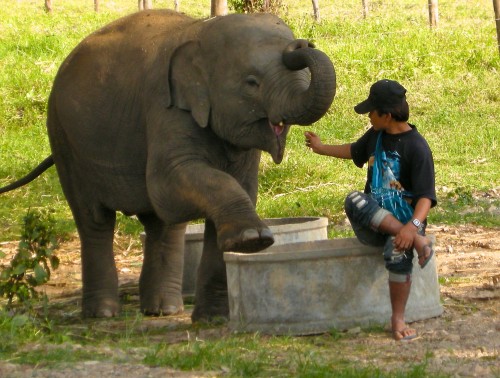
Elephant Sanctuary – Chiang Mai
It’s not quite what you expect when you arrive at your holiday accommodations.
Instead of: ”Welcome, there is chocolate on your pillow and happy hour starts at 5?” my visit to the Elephant Nature Park in Thailand’s Chiang Mai region started with a safety lecture, including such helpful tips as “Run away from aggressive elephants faster than they are running after you,” and “Avoid the moon bear who roams around the grounds.”
Another guest asked, “Does the moon bear eat meat?”
“Not yet,” was the answer.
Learning Ethics from Elephants
For all the careful warnings, the only aggression I saw during my weeklong stay was a heart-stopping moment when one female elephant attacked another. The sight of one of these massive beasts throwing her full weight against another was terrifying. The attacker was known to be the bully of the herd, her victim an elephant who had arrived at this sanctuary already injured. We all heard a loud crack when Ma Bua Khum’s skull connected with the concrete platform. People gasped and the mahouts jumped into action. Ma Bua Khum struggled to get back to her feet, she had tumbled over onto her right side, falling over her bad ankle – already immobilized from a previous break.
What startled me the most was the reaction of the other elephants. No uncaring bystanders in this herd. They rallied around both the attacker and the victim, trumpeting to stop the attack and soothing the two involved in the fight with chirps and gentle caresses of their trunks. I had a lump in my through as I watched their response. I’d heard about the strong social connections between elephants, but seeing it in action is entirely different.
And it reinforced my whole reason for coming here.
Much as I love to travel, I’m always faced with the dilemma of living up to my own ethics and values. Traveling abroad often means confronting how our desires shape industries, economies, and cultures.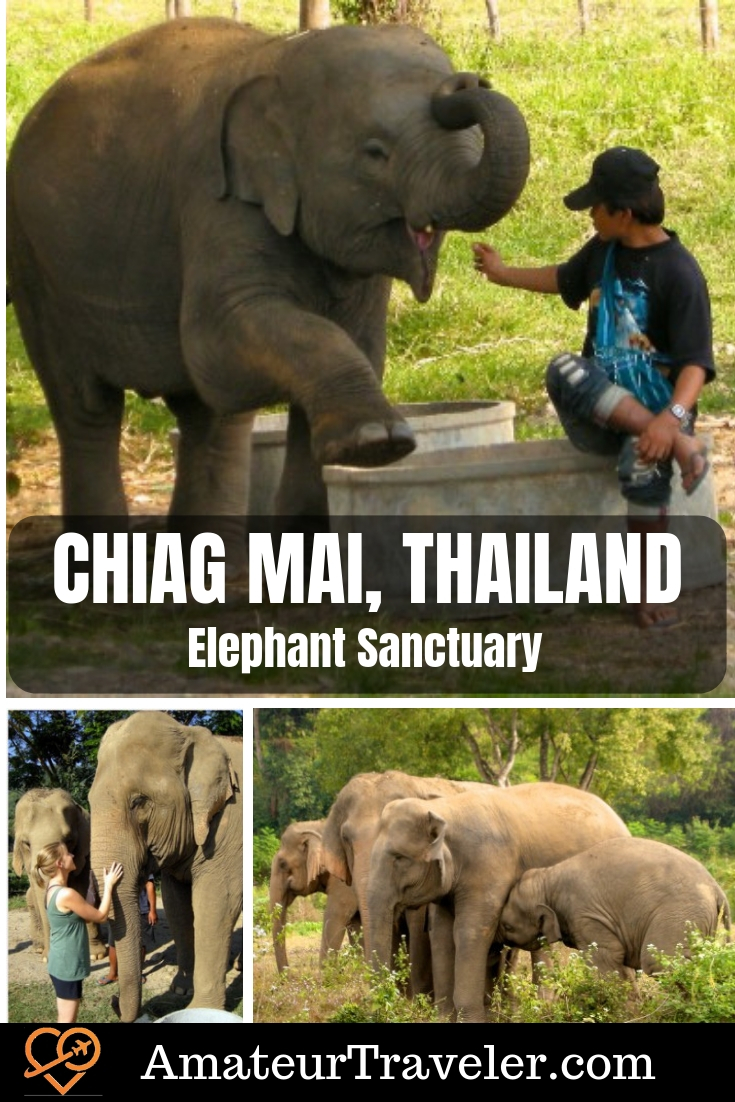
The population of Thailand is 95% Buddhist, a religion that eschews violence, but the brutal treatment of animals seems to fit within one of the philosophies’ loopholes. Elephants, the central symbol of the country, are often seen begging in the city streets, prancing to music at a festival or carrying a party of enthusiastic adventurers through the jungle’s thick foliage. Seeing these gentle giants up close is such a treat to visitors whose only previous experience involves zoos or circus performances, we gladly pay the price to watch them paint a picture or carry us around on their big, broad backs. But how often do we question the practices that have enabled this type of intimate interaction?
Visiting the Elephant Nature Park
Elephant Nature Park has attempted to counteract that by offering an ethical tourism experience that delivers an unforgettable opportunity to interact with the world’s largest land mammal balanced with education about conservation, animal exploitation and, oh yes, some serious manual labor.
Visitors to the park careen up the lush, green hills of northern Thailand, about an hour away from the city of Chiang Mai, to arrive at an oasis in a small valley, fed by a mountain stream and inhabited by a herd of thirty happy pachyderms. They’re happy now, but most have lived through a lot of pain. Many have been injured by landmines, logging camp accidents or cars. The visitors who opt to spend a week or more working with the elephants get ample opportunity to feed them, bathe them in the river, observe the soap opera of herd dynamics and hear the life story of each elephant – stories of suffering and survival.
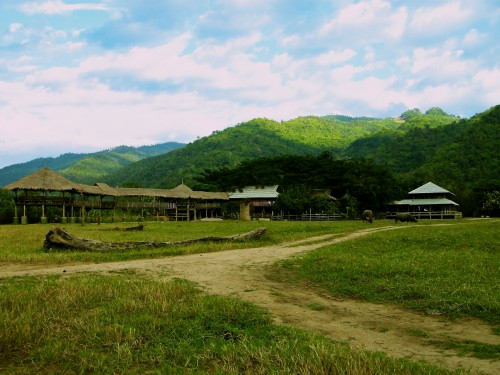
Every morning, after a refreshing cold shower I would grab a mug of coffee (enhanced with a little coconut milk), and pull up a seat overlooking the parks’ acreage. As the sun came up the elephants would amble over to their dining room – right in front of the volunteer’s eating area – and get ready to start their daily chore, eighteen hours of grazing.
After filling up on the buffet breakfast, our team of international volunteers would be assigned our daily tasks – shoveling elephant poo; unloading tonnes of pumpkins, bananas, and watermelon; building fences; planting sugar cane; or splashing in the river with the happy herd. Believe it or not we were always rooting for poo duty. We passed the hours with songs, stories from our travels and photographs of us standing beside, big, beautiful elephants.
After a few days, you quickly become accustomed to walking among the elephants – but they don’t let you forget that this is their park. Trying to build a fence feels really futile when a two-year-old elephant keeps removing each post you pound into the ground.
Lek and Darrick, the park’s founders have struggled to gain the support of the local community. Slowly, by engaging people through employment, conservation projects and opportunities to witness their work, the villagers have come on board. Their families have used elephants for many generations, so changing perspectives and practices takes time… Many of the local women provide Thai massages in the evenings – a treat to work-weary travelers and a significant influx of income to the local economy.
Chang Yim
Chang Yim, a mischievous male calf born at the park in 2009, may be a symbol of the future of elephants in Thailand. His rambunctious personality is a strong contrast to the older residents. I delighted in watching him tackle his sister, spout water from his trunk, and roll around on the sandy shores. At two or three years of age, most elephants in Thailand would be undergoing harsh training to make them yield to the request of humans. You see the legacy of that training in the elephants in the park, who still cower if someone raises a camera too quickly, remembering past pain. Some still have physical scars, almost all have emotional scars.
Chang Yim is being trained, but using only positive reinforcement. He’s living evidence that these gentler methods work, and Lek’s hope is that his example will change the traditional practices.
After a week with these remarkable animals, it’s my hope, too.
And I’m relieved to be able to add that the moon bear is still vegetarian… so far.
To learn more about the park visit ElephantNaturePark.org
Leave a Reply
Tags: article, chiang mai, thailand, volunteer travel, wildlife

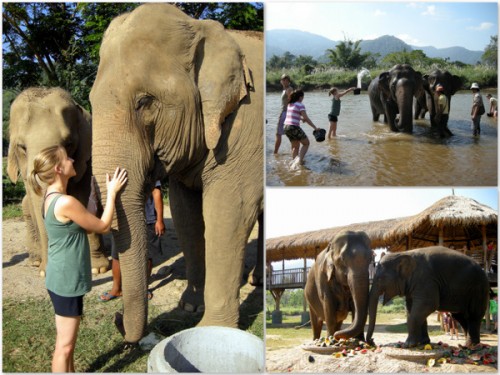
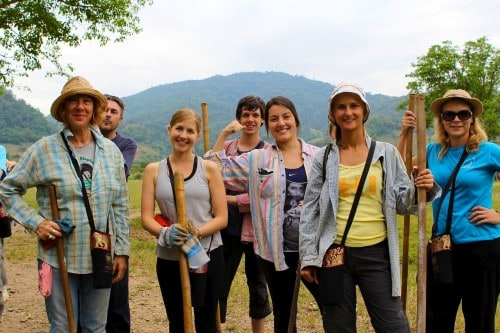
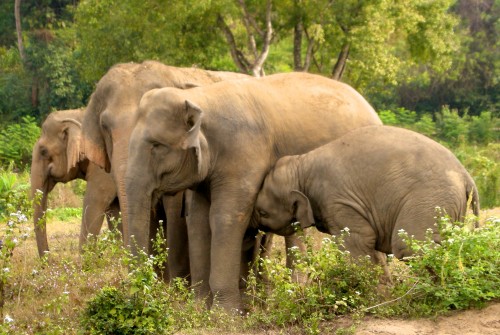
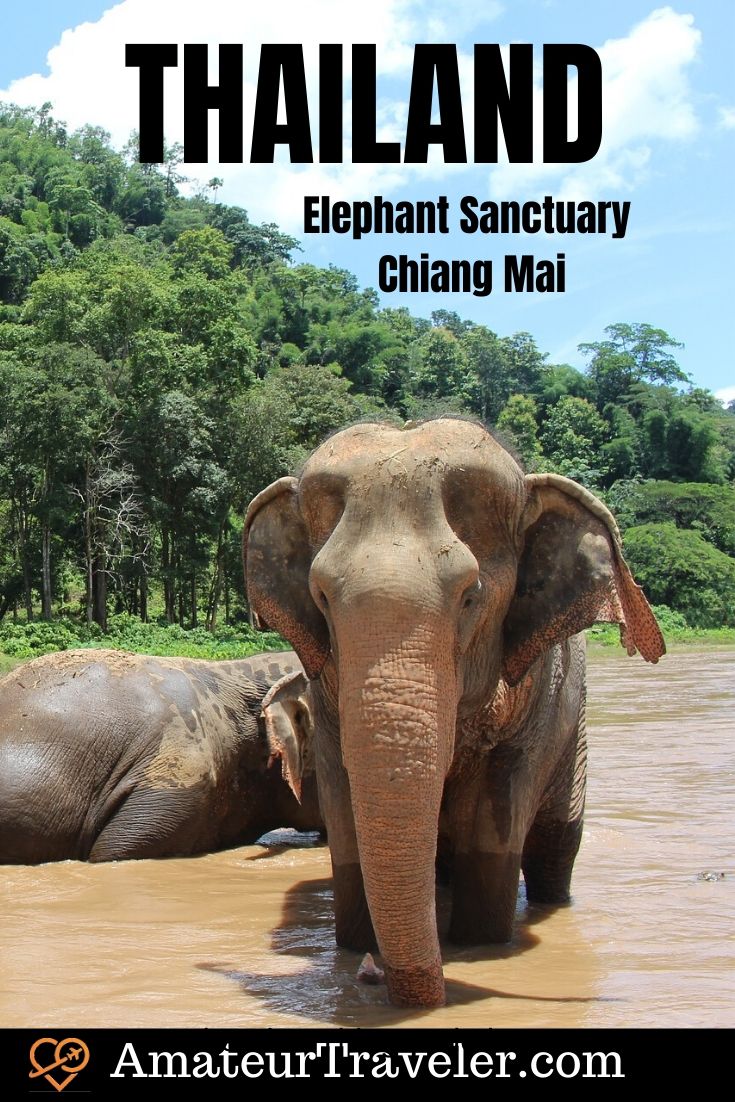
 Travel to Thailand – Episode 129
Travel to Thailand – Episode 129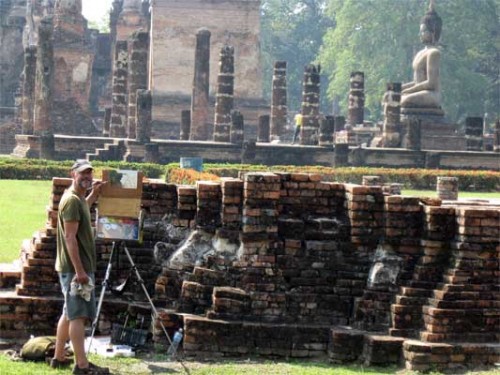 An Artist in Thailand – Thailand through the Eyes of a Painter
An Artist in Thailand – Thailand through the Eyes of a Painter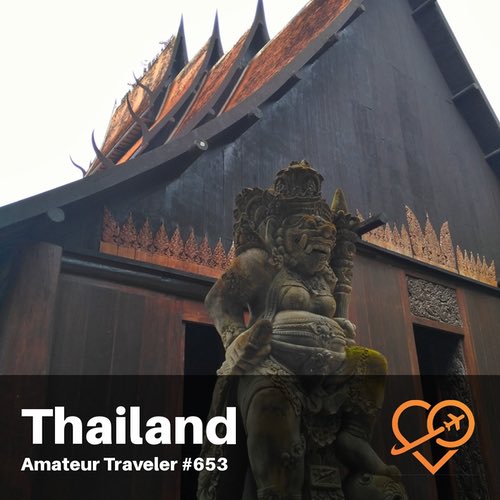 Travel to Thailand – Episode 653
Travel to Thailand – Episode 653 Volunteer Programs for High School Students – Thailand
Volunteer Programs for High School Students – Thailand
